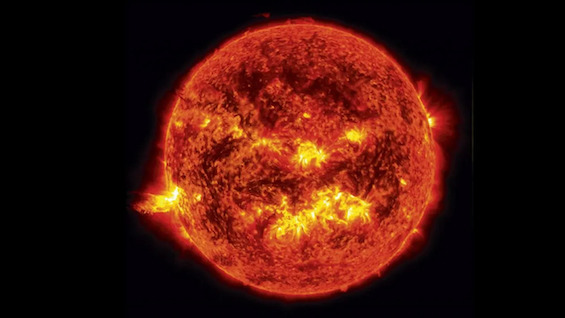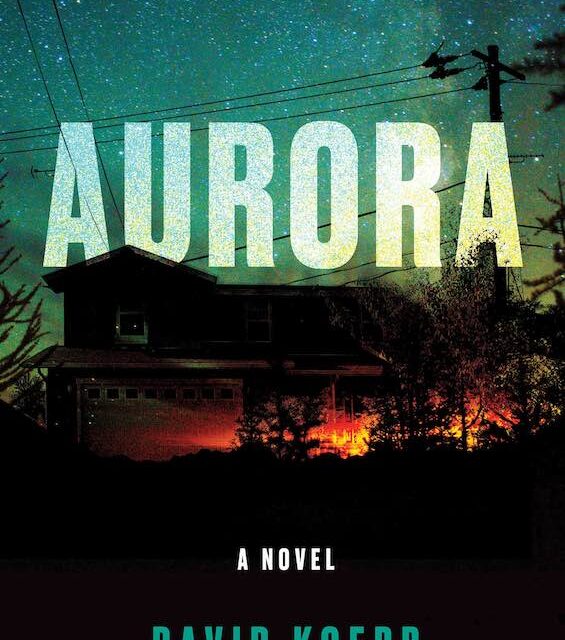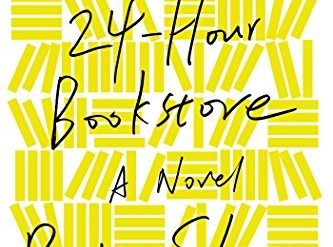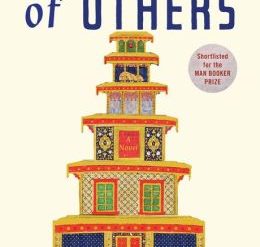
More than ninety percent of the Earth’s people now have access to electricity, according to the World Bank. What might happen if the world’s electric generating and transmission facilities suddenly died as the result of a solar storm, a massive wave of charged particles from the Sun? It happened before in 1859 in what came to be called the Carrington Event. But that was thirty-three years before the Edison Illuminating Company brought electricity to a few hundred homes in New York City. The rest of the human race still lived in a world lit only by fire. Today, a coronal mass ejection like the Carrington Event would be catastrophic. And screenwriter and novelist David Koepp brilliantly portrays what might happen in his disturbing new novel, Aurora.
A fascinating cast of characters
In the hands of a less practiced writer, the story in this novel might have contained scene after scene of riots and roving bands of desperate people bent on destruction. After all, a massive solar storm like that in 1859 would be catastrophic. But there is little of that in Aurora. Koepp brings the tale down to Earth, focusing on the experiences of a handful of interesting people. A legendary 88-year-old solar scientist. His much younger former student, now at the National Oceanic and Atmospheric Administration (NOAA). A young divorced woman in the Illinois town of Aurora and her violent, alcoholic ex-husband. The ex-husband’s troublesome fifteen-year-old son who now lives with his former stepmother. And a survivalist Silicon Valley billionaire who has built a luxurious bolthole in a former missile silo in Utah. Of course, they all interact as the plot unfolds, making for spellbinding drama.
Aurora by David Koepp (2022) 299 pages ★★★★★

Drama that’s hard to put down
The author’s cinematic chops are obvious in this novel. Little wonder, then, that esteemed director Kathryn Bigelow is developing a major new film for Netflix based on the book. But casting the story will present challenges for the director. The most colorful characters in Aurora include two men. Eighty-eight-year-old Norman Levy, the retired solar scientist in Aurora, Illinois, who helps alert the world about the disaster that’s about to engulf the planet. And robotics billionaire Thom Banning who stands in for other superrich Silicon Valley men who fear the apocalypse and have the money to prepare for it. Playing either character as Koepp portrays them will require an actor with depth and subtlety of character. But every character in the novel emerges three-dimensionally from the page. The scriptwriter—most likely, Koepp himself—will have an easy job.
How likely is such a massive solar storm?
Koepp opens his novel with a lurid description of the “electromagnetic chaos” that was the Carrington Event. “Telegraph operators across the globe reported streams of fire bursting from their signal boards, platinum relay switches melted, and, around the world, there were reports that the night skies lit up as in daytime.” His closes the preface with a warning: “A major CME hits the earth full force, on average, every hundred and fifty years. We are overdue.”
So, skeptic that I am, I checked Koepp’s facts. It appears the threat may be just as great as he says. A new scientific study reported in January 2020 in Geophysical Research Letters “shows that what the scientists called ‘severe’ space super-storms occurred 42 years out of the last 150 years. What they called ‘great’ super-storms occurred in 6 years out of 150.” In other words, “on average there is a 4% chance of at least one . . . severe storm per year, and a 0.7% chance of a Carrington class storm per year.” In other words, about one chance in 150 each year.
About the author

David Koepp (1963-) “is the ninth most successful screenwriter of all time in terms of U.S. box office receipts with a total gross of over $2.3 billion,” according to Boxofficemojo.com. And the assertion is credible, given the man’s screen credits, which include Jurassic Park, Spiderman, and Mission: Impossible. He is also the author of two superb science fiction novels, Cold Storage and Aurora. Koepp holds a bachelor’s degree in film from UCLA.
For more reading
This novel made my list of The best science fiction of 2022.
I’ve also reviewed David Koepp’s excellent earlier novel, Cold Storage (A biological thriller that may keep you up at night).
For another good noel about the threat of another Carrington Event, see Solar Storm: Moon Base Delta (Moon Base Delta #1) by Gerald M. Kilby (A solar storm imperils life on Earth, in space, and on the moon).
For more good reading, check out:
- These novels won both Hugo and Nebula Awards
- The ultimate guide to the all-time best science fiction novels
- 10 top science fiction novels
- The top 10 dystopian novels reviewed here
And you can always find my most popular reviews, and the most recent ones, plus a guide to this whole site, on the Home Page.



























